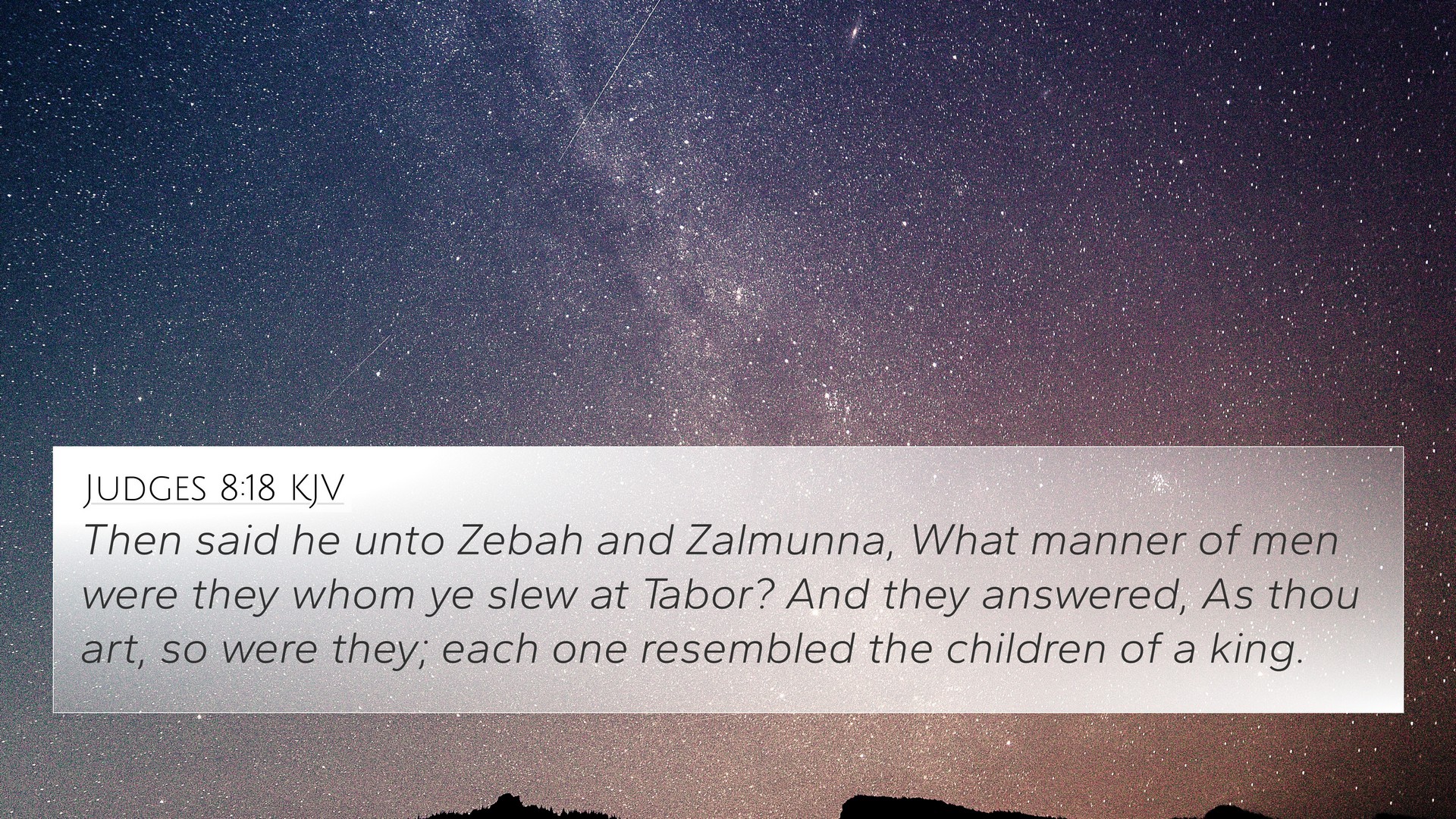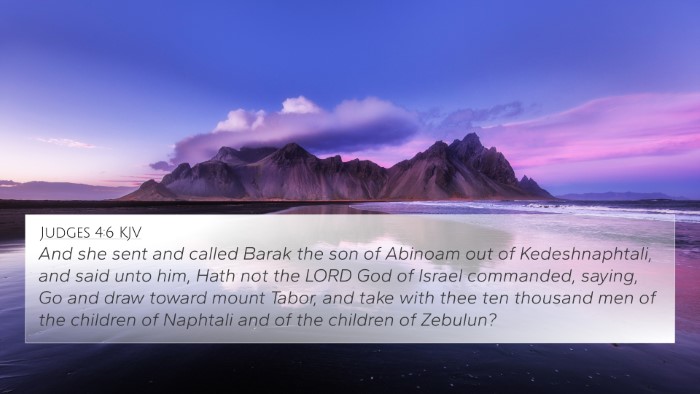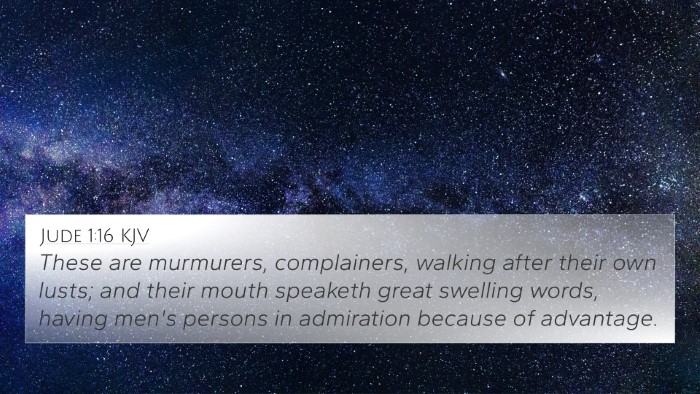Understanding Judges 8:18
Judges 8:18 presents a moment in the narrative where Gideon confronts his adversaries, shedding light on themes of justice, retribution, and the nature of God’s deliverance. This verse is pivotal for understanding the moral and spiritual undertones in the Book of Judges. Below, we summarize insights from esteemed public domain commentaries including Matthew Henry, Albert Barnes, and Adam Clarke.
Verse Context
In this passage, Gideon addresses the kings of Midian. The entire chapter showcases God’s deliverance of Israel from oppression and the review of Gideon's leadership. Gideon’s engagement reflects deeper principles of divine judgment and personal integrity.
Commentary Insights
Matthew Henry's Commentary
Justice and Retribution: Henry emphasizes Gideon’s role as an agent of God’s justice. The question posed to the kings reinforces the idea that leaders are held accountable for their actions, particularly against God’s chosen people. Gideon highlights the senselessness of continued enmity towards Israel when they had been delivered by the Lord.
Symbolism of the Actions: Henry notes that Gideon’s actions serve as a metaphor for the struggles between light and darkness, good and evil, demonstrating that those who oppose God’s people ultimately face defeat.
Albert Barnes' Commentary
Historical Context: Barnes offers a historical perspective, noting the Midianite oppression that preceded Gideon’s campaign. Understanding their cruelty against Israel amplifies the significance of Gideon's inquiry toward the Midianite leaders.
Reflection on God’s Power: Barnes emphasizes that the passage serves as a reminder of God’s deliverance, reinforcing His sovereignty over nations and peoples. The kings’ response to Gideon illustrates the futility of resisting God’s will.
Adam Clarke's Commentary
Leadership and Accountability: Clarke draws attention to the character of Gideon—marked by strength and moral integrity, demonstrating how effective leadership requires a firm stand against wrongdoing.
Theological Implications: He discusses that Gideon’s question isn't merely for personal vengeance; instead, it seeks justice to uphold God’s standards and to further establish His covenant with Israel.
Thematic Connections
This passage connects with other biblical themes regarding leadership, accountability, and divine justice. Below we provide a list of related Bible verses that enrich the understanding of Judges 8:18.
- Exodus 22:2-3: Discusses retribution and the consequences of crime.
- Psalm 77:14: God shows His power among the nations, retaining the theme of divine authority.
- Romans 13:4: The role of government in executing justice reflects God’s authority.
- Proverbs 21:15: Justice brings joy to the righteous and dread to evildoers.
- Isaiah 1:17: Urging leaders to seek justice, emphasizing the moral duty of leadership.
- Matthew 7:2: The principle of judgment and accountability that parallels Gideon's inquiry.
- Galatians 6:7: The law of sowing and reaping reinforces the ongoing theme of divine justice.
- 2 Corinthians 5:10: We all must appear before the judgment seat of Christ, reflecting accountability.
- Ephesians 6:8: Knowing that whatever good anyone does, he will receive the same, connecting to justice and reward.
Bible Verse Parallels
Analogous verses throughout Scripture create a rich tapestry illustrating God's justice and righteousness. Notably:
- Genesis 18:25: Abraham’s plea for justice against Sodom reinforces the significance of righteous judgment.
- Jeremiah 22:3: Commands for ensuring justice fosters the understanding of leaders’ duties.
- Matthew 12:36: Reminds that individuals will be accountable for every careless word spoken, tying back to accountability themes.
Conclusion
Judges 8:18 invites readers to ponder the critical role of leadership in upholding justice as ordained by God. The interconnectedness of this verse with others presents a framework for understanding divine authority, human responsibility, and the implications of God’s deliverance. By incorporating themes, cross-references, and insights from commentaries, we gain an enriched understanding of the scripture.
Further Study Suggestions
For those interested in deeper theological exploration, consider utilizing tools for Bible cross-referencing, such as:
- Bible concordance
- Bible cross-reference guide
- Cross-reference Bible study methods
- Bible reference resources
Engaging with these resources will enhance understanding of connections between Bible verses, providing a comprehensive toolset for personal study or sermon preparation.






